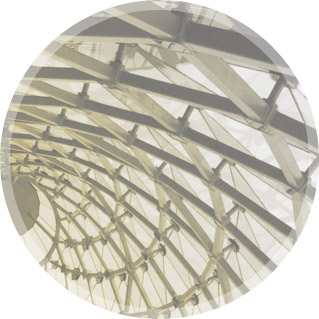Andrews University
School of Architecture, Art & Design
The faculty promote stewardship, rigorous scholarship and creative problem solving in their disciplines, and encourage students to: Shape places that foster whole human health; Explore time-honored and innovation solutions in their works; Seek joy, beauty, and moderation in a lifelong pursuit of learning; Serve mankind in accord with a professional and Christian vocation. All this for the glory of God until the risen Christ comes again.
http://www.andrews.edu/andrewssaad/arch/
Setting
Andrews University is sponsored by the Seventh-day Adventist Church, established to provide high-quality Christian education in the context of the Adventist faith and to prepare students for leadership, stewardship, and service. Andrews welcomes men and women from all nations and faiths who meet the qualifications established by the institution and who subscribe to the ideals of the university. The university is set in a small town on a well groomed and spacious campus.Located between Grand Rapids and Chicago in the southwest Michigan village of Berrien Springs, Andrews is a residential university with a population of approximately 3,000 students from more than 80 countries. The School's faculty/student ratio of1:15 allows students to receive considerable individual attention in classes and design studios, and is consistent with the university's commitment to holistic and integrative education.
School Philosophy
The undergraduate program is organized around two primary areas: the craft of construction and making buildings supportive of community. The focus of the first two years of the curriculum is more directed to the first area, with studio courses on graphics, formal composition, place-making, and the craft of construction supported by lecture courses on construction materials and methods, structures, environmental technologies, and architectural history. Beginning in the third year, students are introduced to the history and typology of urban form, and take studios in sustainable design, urban background buildings, and urban foreground buildings, all emphasizing both environmental and community sustainability. In the Comprehensive Building Design studio and Integrative Design studio in the fourth year students are expected to bring together their studies in both craft and community in the design of a building in greater detail than in previous studios. In the fifth year they take the Urban Design Studio, which typically involves an off campus community design charrette in a small town or city neighborhood and the subsequent production of a master plan, code, and ordinance.In the final semester the students participate in a practicum program or a mission-based studio project. In addition to these required areas of the curriculum students have various elective options in the third, fourth, and fifth years.

Programs
The professional degree program consists of a pre-professional Bachelor of Science in Architecture degree, followed by a Master of Architecture degree. When earned sequentially, this degree track results in an accredited professional education. The Master of Architecture 3 1/2 year degree track is designed for students who have previously earned an undergraduate degree in an unrelated area of study.

of Focus
1. Digital Design & Visualization
2. Materials and Construction
3. Building Technologies
4. Community Design
5. Cross-Cultural Contexts > Human Experiences
6. Urbanism
7. Design/Build

Opportunities

Facilities

Policies
Transfer Policies
Transfer Student Application
We request the following as part of your application:
– Proof of completion of high school (official transcript) or secondary school or a GED certificate
– Students who have less than 25 cumulative college credits must apply before priority processing dates and will be reviewed by the Undergraduate Admissions Committee and may be asked to submit ACT/SAT results
– Students must have a minimum 2.5 cumulative college GPA and submit any and all college transcripts from institution(s) previously attended*
– Two recommendations are required from non-relatives, including contact information (part of the application)
– English Proficiency: If English is not your first language, a TOEFL of 80 or higher (Internet-based) or MELAB test must be submitted. If you do not meet the requirements, then English Intensive courses are required before enrolling full-time in regular courses. Such courses are offered on our campus.
*Transfer students who have earned 25 or more semester credits before applying to Andrews are evaluated on the basis of their cumulative college GPA and not their high school/secondary school GPA.
For a complete description of our admission requirements please see the online bulletin: (https://bulletin.andrews.edu/content.php?catoid=11&navoid=1328)


